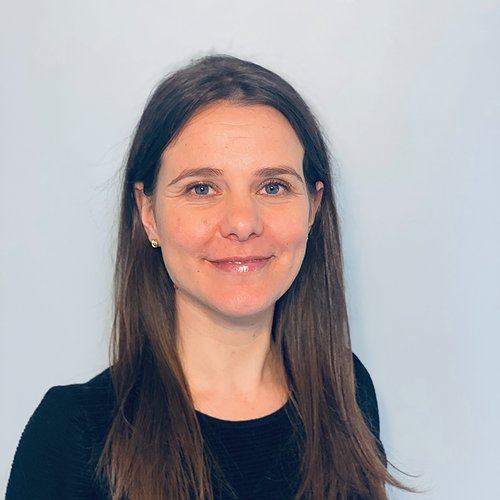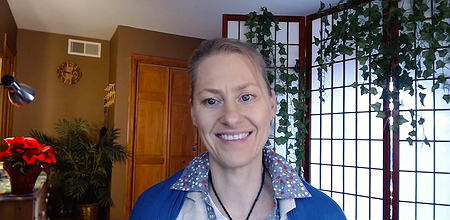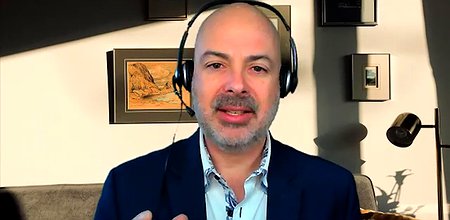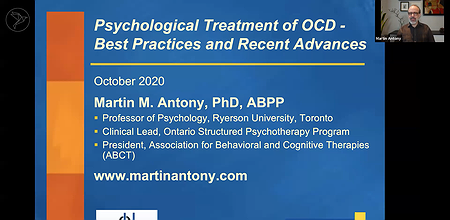- Conduct a comprehensive assessment of Generalized Anxiety Disorder (GAD) and associated comorbidities
- Develop a CBT case conceptualization for GAD, integrating core beliefs, cognitive distortions, and relevant psychosocial factors to inform a personalized treatment plan
- Implement the most effective CBT interventions for GAD
CBT for Generalized Anxiety Disorder: A Clinician’s Guide
Dre Deborah Schwartzman, Psychologist
Treatment plans and actionable clinical recommendations for optimal outcomes
Excerpt:
- 3h30 of continuing education
- 27 lessons that last from 5 to 15 minutes each
- 1 certificate of achievement
- 1 PowerPoint
- 1 bibliography
- 1 course evaluation
- 7-day money back guarantee
- Unlimited access
- 97% of participants who completed the satisfaction survey declare they would recommend this course to a colleague
Overview
Generalized Anxiety Disorder (GAD) is unique among anxiety disorders for its pervasive and shifting nature. Clients often describe their worry as uncontrollable, with new concerns arising as quickly as others are resolved. Treating GAD can feel like chasing a moving target.
This workshop, facilitated by Dr. Deborah Schwartzman, an experienced clinical psychologist, is thoughtfully designed for mental health professionals seeking to enhance their expertise in addressing the complexities of Generalized Anxiety Disorder (GAD). Through a structured Cognitive Behavioral Therapy (CBT) protocol, participants will develop the skills to assess, conceptualize, and design effective, personalized treatment plans tailored to clients with GAD.
The workshop covers essential components, including anxiety-management and attention-control training to regulate physiological arousal and enhance concentration, cognitive interventions to identify and modify distorted thoughts and schemas, and exposure interventions to gradually confront and desensitize clients to anxiety-provoking stimuli.
Participants will also learn evidence-based behavioral strategies to foster adaptive coping skills and establish behaviors aligned with the clients' values, and implement relapse prevention techniques to maintain therapeutic progress.
By the end of this workshop, participants will be equipped with practical, evidence-based tools to deliver effective, individualized CBT interventions, ultimately enhancing the long-term mental health and well-being of their clients.
Accreditation
Collège des médecins du Québec
For physicians who practice psychotherapy, training recognized by the Ordre des psychologues du Québec is automatically considered as activities adopted by the Collège des médecins, in accordance with Article 3 of the Regulation.
For physicians who do not practice psychotherapy, the College evaluates each recognition request based on the following criteria:
- the relevance of the activity to the practice of the profession
- the skills and experience of the trainer
- the quality of the content and its adequacy with the physician's practice
- the pedagogical framework of the activity
- the quality of the documentation provided
- compliance with the training objectives set out in the regulation
- the presence of a certificate of participation or an evaluation
About the expert

Dr. Deborah Schwartzman, psychologist, is an experienced psychologist who provides clinical services to a wide variety of clients and patients. She however specializes in providing support and treatment for individuals struggling with post-traumatic stress disorder, anxiety disorders, and mood disorders.
She has extensive research and clinical experience in Cognitive Behavioural Therapy (CBT), a well-established and evidence-based approach. In addition to her clinical work, Dr. Schwartzman provides clinical training and supervision to graduate students and interns as well as mental health professionals.
Learning objectives
Learning material
A theoretical course illustrated with clinical examples. This course is composed of videos of 5 to 15 minutes each. The PowerPoint of the course to download.
Syllabus
- PowerPoint
- 1. Introduction
-
What is GAD?
- 2. Worry, Fear, and Anxiety
- 3. Understanding GAD- Prevalence, Onset, and Key Factors
- 4. Maintaining Factors, Impact, and Comorbidities
- 5. CBT and Medication
- 6. Differential Diagnosis
- 7. Assessment Instruments
- 8. CBT Model and Treatment Components
-
Managing General Anxiety: Education, Monitoring, and Techniques
- 9. Psychoeducation
- 10. Symptom Monitoring
- 11. Anxiety-Management & Attention-Control Training
- 12. Additional Strategies
-
Cognitive Interventions
- 13. Interventions for Current Problems
- 14. Interventions for Hypothetical Worries
- 15. Identifying Cognitive Distortions
- 16. Identifying Schemas
- 17. Example- Challenging Positive Beliefs About Worry
- 18. Example- Challenging Negative Beliefs About Worry
-
Behavioral Interventions: Safety Behaviors, Avoidance & In-Vivo Exposure
- 19. Identifying Safety Behaviors
- 20. Identifying Exposure Situations
- 21. In-Vivo Exposure
- 22. Additional Considerations for In-Vivo Exposure
- 23. Additional Behavioral Interventions
- 24. Additional Skills Training and Values-Based Goals
- 25. Long-Term Management of GAD, Relapse Prevention & Termination
- 26. Case Example
- 27. Conclusion
- Bibliography
CE Credits
Download a certificate of successful completion.
Audience
This course is intended for mental health professionals.
Your comments
"This course provide me more tools to help patients. It was clear, very interesting ! Thank you !" (automatically translated)
A psychologist
Registration
Ask a question
Do you have a question? Then email us at contact@asadis.net
Frequently asked questions
-
Is there an evaluation at the end of the course?
To validate the achievement of the learning objectives, a final evaluation in the form of true/false questions is required. It must be completed in order to obtain the certificate of completion.
In addition, an optional self-assessment is offered at the beginning and end of the course, allowing you to measure your progress on the targeted skills.
These evaluations are not graded and are intended primarily to support your professional reflection.
-
I have a disability. Can I receive specific support?
Yes! This training is offered as a pre-recorded video format, without subtitles. If you have a disability, we can provide an adapted alternative (technical assistance for viewing or individual supervision). For any request, please contact our disability coordinator at the following address: contact@asadis.net
-
How long do I have access to the course?
After your registration, the course is accessible anytime and from anywhere with unlimited access.
-
When does the course start?
That is entirely up to you! When you buy a course, you'll receive an access link that you can activate when you want.
-
Is there a student rate?
Yes there is! To learn more, email us at contact@asadis.net.
You may also be interested in:
Legal notice
The courses offered by ASADIS are accredited by different professional organisations. In addition, ASADIS is approved by the Canadian Psychological Association to offer continuing education for psychologists. ASADIS maintains responsibility for the program.
The CPA’s approval of an individual, group, or organization as a CE Sponsor or Provider is restricted to the activities described in the approved application or annual report form. The CPA’s approval does not extend to any other CE activity the Sponsor or Provider might offer. In granting its approval, the CPA assumes no legal or financial obligations to Sponsors, Providers, or to those individuals who might participate in a Sponsor or Provider’s CE activities or programs. Further, responsibility for the content, provision, and delivery of any CE activity approved by the CPA remains that of the CE Sponsor or Provider. The CPA disclaims all legal liability associated with the content, provision, and delivery of the approved CE activity.






